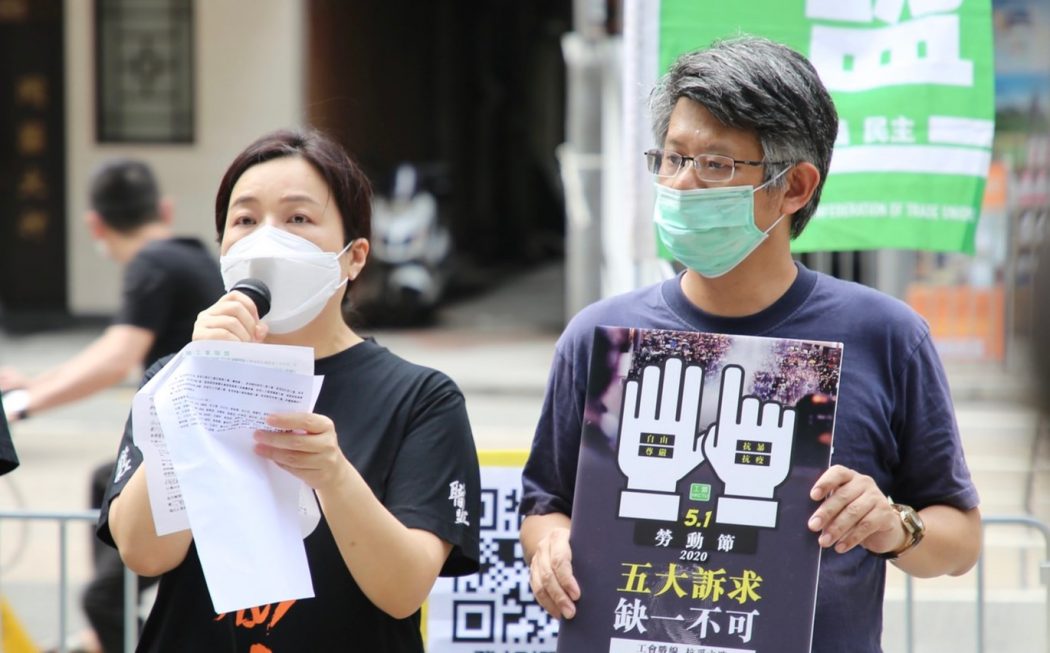by Jerome Taylor
Riot police fanned out across Hong Kong on Friday after democracy activists threatened to defy a ban on gatherings during the coronavirus pandemic — but the streets remained largely calm.

The semi-autonomous financial hub was upended by seven months of violent protests last year, hammering its reputation for stability and leaving the city deeply divided.
Widespread arrests, the coronavirus pandemic and social distancing measures ushered in four months of comparative calm.
But small protests have bubbled up in the past week and activists had issued calls to muster once more on May Day despite emergency anti-virus laws banning more than four people gathering in public.
Pro-democracy unions and social media posts called on people to gather in several neighbourhoods on Friday afternoon but the threat failed to materialise.
The South China Morning Post reported 3,000 riot officers were on stand-by with rubber bullets and tear gas at the ready.
Officers ramped up their presence across the city on Friday, searching primarily young passengers at subway stations and surfacing in neighbourhoods where anti-government sentiment runs high.
Some encrypted chat groups used by protesters fretted that public demonstrations while anti-virus laws were in place might lead to mass arrests.

The pro-democracy Labour Party said one local politician was arrested for allegedly gathering with more than four people on Friday morning.
During brief rallies in malls earlier this week, activists encouraged each other to keep 1.5 metres apart and stick to small groups of four.
Riot police quickly intercepted the flashmobs, forcing them to disband as either unlawful assemblies or gatherings that breached the anti-virus measures.
Panic subsides
Three months ago, Hong Kongers were panic buying masks and hunkering down in cramped apartments as one of the first places outside mainland China to be struck by the coronavirus.
But the fear has abated in recent weeks.
Health authorities have made impressive strides against the outbreak with just over 1,000 infections and four deaths.

For five of the last seven days, the city of seven million has reported no new cases and authorities plan to begin easing movement restrictions in the coming weeks.
But any relaxation would come at a time of renewed political tension — and as the anniversary of the start of last year’s huge protests approaches.
Anger towards Beijing has been inflamed by the recent arrest of prominent moderate activists on charges related to the protests and senior Chinese officials announcing a greater say in how Hong Kong is run.
Last year’s protests began in opposition to an eventually scrapped plan to allow extraditions to China’s party-controlled courts.
But the movement soon snowballed into a popular revolt against Beijing’s rule and a call for greater freedoms.

Hong Kong’s government and Beijing have shied away from any reconciliation moves, holding fast against demands for an inquiry into police conduct, an amnesty for the 7,800 people arrested during protests and universal suffrage.
On Thursday night Hong Kong’s unpopular chief executive said she feared unrest could return.
“Hong Kong might be able to survive the economic cold winter,” she wrote, referencing the virus hammering business.
“But I am worried that we could not be able to stand the continuous political devastation and resurgent violence.”
